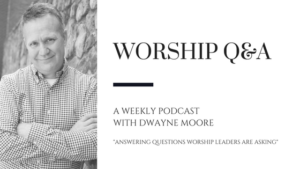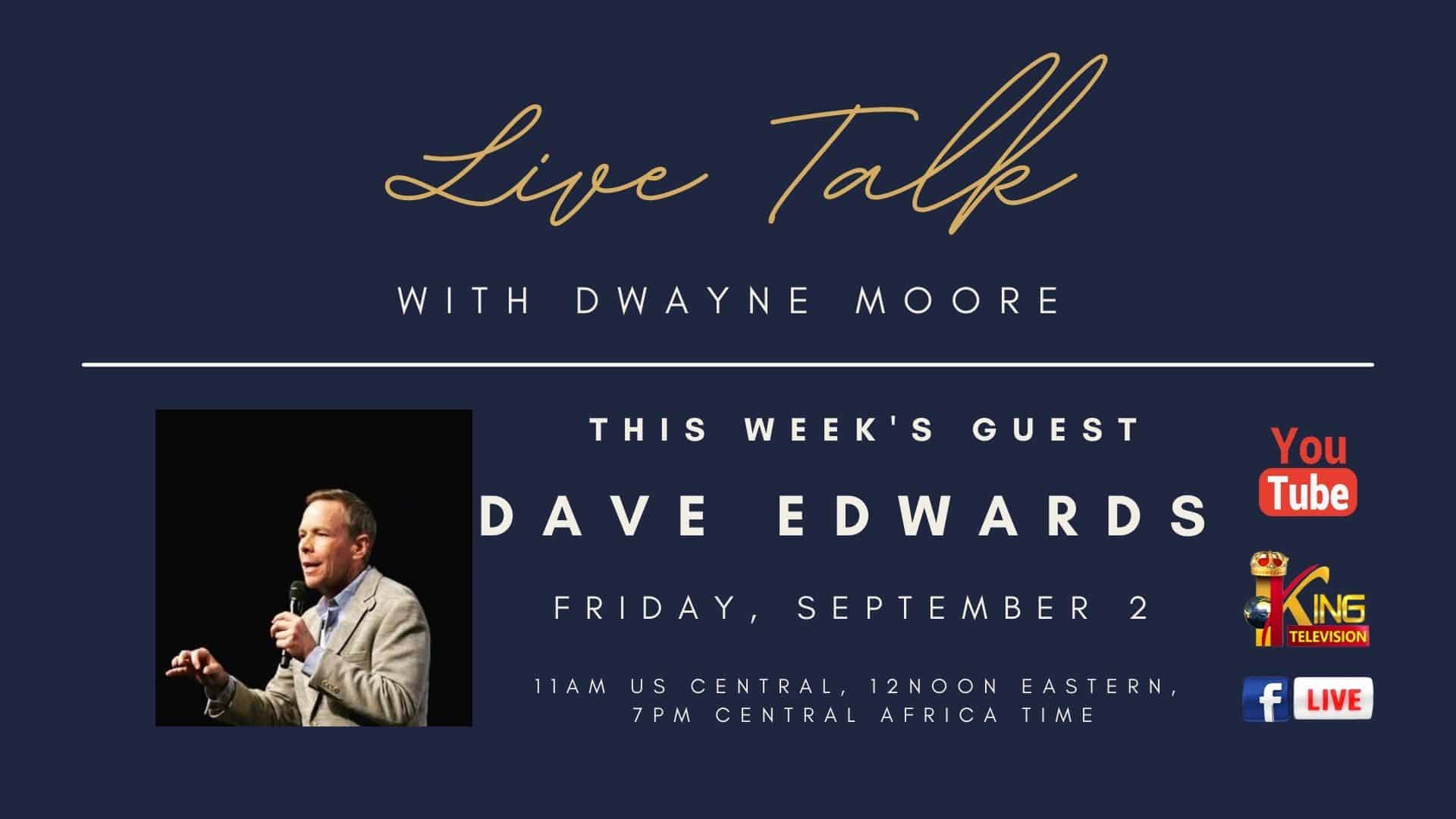Why Do Worship Leaders Need to Invest Themselves Into Learning More? (Podcast)
Dwayne Moore: Hello everyone, I’m Dwayne Moore. Welcome to the Worship Q&A podcast. Each week we try to answer questions that worship leaders are asking. Today I am sitting in the office of one of my dear friends, Hector Jeminez?
Hector Jeminez: Hector Gabriel Jeminez.
Dwayne Moore: Jeminez, oh see I wrecked his name.
Hector Jeminez: Oh, it’s all good.
Dwayne Moore: Okay, but Hector, I’m going to let you introduce yourself and tell us what your role is here, but we are at California Baptist University. And man, you trusted me and invited me in here, and this Alabama boy among a bunch of Californians. And you know what? I think he actually understood what I said. My southern drawl didn’t mess you up too bad. But we are so honored to have you now with our podcast. Hector, why don’t you tell us again about your family, and tell us what you do here at CBU.
Hector Jeminez: I am a full time faculty here in the school of music, and director of our brand new worship arts in ministry program. I’m also chapel worship leader for our student body. A little bit about my family, I have a wife of six years, her name is Jessica. And twin baby girls who are now two, Sarai and Eden.
Dwayne Moore: Sarai and Eden?
Hector Jeminez: Sarai and Eden, yeah. They’re awesome.
Dwayne Moore: Oh I know, you showed me a picture man, so cool. Unpack that a little bit more about, this is a new program. How new is it?
Hector Jeminez: We just started it in the fall of 2017. So we’re midway through our spring semester. Our first cohort of students started with 35 students, students who are hungry and wanting to go change the world for the kingdom as worship leaders and worship pastors.
Dwayne Moore: Well I have the privilege of meeting some of them today. And just a little bit of time to hang out with them, and I’d agree with you, you got some sharp ones. The question that I want us to put out there for you to help us understand today is, because I think we need to help people understand, why is it important, not just to be able to play a guitar and have that presence on a stage. Why does a leader need to come to a school, or to invest themselves in learning more? That may seem like an obvious question, but unfortunately I’m seeing that that’s not happening as much as I feel like it should, and I’d like to see what you think about that.
Hector Jeminez: Like no other time in history, there is a need for quality worship pastors and worship leaders that understand the complexities that are coming along with the 21st century. Everything that’s integrated with technology. Now we see our country as it’s growing in diversity, we have different cultures represented in our church congregations, that we need to be sharp and aware of what’s going on to be able to shift with the changes and move with that. Like you I’m sure, I graduated college with a general music degree. There were a lot of things I learned on the fly in church ministry, and so the benefit of a program like this is for students to come and learn the mistakes before they get out in the world.
Dwayne Moore: Oh I love that, okay. Now that’s, okay learning before they go out there, because definitely that is a tough place to learn mistakes, because people aren’t as forgiving in the churches as they can be in this environment.
Hector Jeminez: So our degree, we base it on four principles. The first is, we want to produce students with pastoral hearts, and pastoral leadership. It’s more about people, less about music. I know it sounds funny coming from a school of music, but it is, a pastoral heart is about people, not just music. Second of course is technology. With technology changing so quickly, we want to prepare our students with the tools necessary to be successful as far as technology goes, and how to handle that conversation in a corporate setting. Third of course, music degree is music. We want to train our students to be excellent musically, especially as I said before, with the change and it being more diverse, what can we offer our churches as far as music goes? It’s becoming increasingly more complex. There’s genres that we can do to be able to incorporate in our congregations. And lastly is probably the most important is, theology. Every worship arts and ministry student leaves here not just with a bachelors degree in music, but a minor in Christian studies. So it’s also a minor in Christian studies. And aside from that, it’s very practical. We’re teaching our students practical leadership skills, how to manage a budget. All our students are involved in internships as well, so it’s a very practical degree, and we’re looking to send out students who are ready to go.
Dwayne Moore: You said they’re involved with internships. You mean in churches?
Hector Jeminez: That’s right.
Dwayne Moore: Wow.
Hector Jeminez: Local churches. We have 25 of our students right now plugged in, in local churches around southern California every Sunday.
Dwayne Moore: I’d imagine in this population, there’s plenty of churches that need what you offer.
Hector Jeminez: Yes, they’re all over the place.
Dwayne Moore: If you’re in, and I imagine there may be someone listening … by the way, we also put this in a blog article, so it’ll also be in printed form. But imagine that you are talking to somebody whose maybe 18, 19 years old. Or maybe you’re talking to the parents of someone in that place in life. Or maybe they’re 20 or 25, who knows. Maybe they’ve already had some experience under their belt, and maybe they feel like they don’t really need this. But what do you say to a person like that when it comes to, well it’s expensive, it takes up time, I could get on with my life, all the things that people throw up. I’m sure you hear them all. Kind of cutting through that, other than what you said about, this is the place to make those mistakes and learn, why would one prioritize this? Because I’m a big proponent, I would like to hear what you say to that.
Hector Jeminez: It’s just like with any degree, if it’s something that you’re passionate about and you feel called to, immersing yourself in it and going as deep as possible to be able to gain the necessary skills musically, to offer something to your local church deeper than just what you could teach yourself, or just what you could learn on YouTube. But a deep understanding of musical abilities, and how that works theoretically. And then like I said, the theology portion of it, really going deeper in that area to be able to be excellent in the art of being a worship leader.
Dwayne Moore: Oh I love what you said, pastoring, that was the word you started with, technology, musicianship, and theology.
Hector Jeminez: Yes.
Dwayne Moore: Oh my goodness, yeah. I don’t think you can get that. I guess you could, but it would be very difficult to get all of that on your own watching YouTube. So I can understand that’s important.
Hector Jeminez: I think there’s something unique as well. We have a cohort of about 35 students, and there’s something about a cohort coming together, iron sharpening iron day in and day out on campus. Doing life together, and learning from each other. Every week we get together and hash out what went wrong, what was successful in our internships over the week.
Dwayne Moore: There’s something about that learning model. It’s maybe around for many years, but it still works. It still works. One professor that I had in school when I was complaining one day, she was a voice professor of mine, I was complaining I guess too much in front of her about all this work I have to do. And she said, how long did Jesus have public ministry? And I thought oh this is definitely a set up question. And I said, well three years. And she said, and how long did he prepare? Of course, I knew she had me at that point. So the preparation part is very, very important. If you are listening, if I’m a worship leader, pastor of a church listening, which some are right now listening to this podcast. How can they, how do these worship pastors get helped by you, and by this organization, by this wonderful institution?
Hector Jeminez: Well I think there’s online resources if you go to calbaptist.edu/worship all the information there if you want to get plugged in and get more involved. We offer Bachelors of Arts in Music, emphasis in worship arts in ministry right now, so worship arts in ministry program. And we’re launching a Masters in worship arts and ministry that is all online, with the exception of a couple of intensives that you come. It’s a one year program, and you’ll only miss one Sunday out of the year. And it’s an entry level program, so if you have a Bachelors degree, or any other degree, you can get in this program.
Dwayne Moore: That’s awesome. Awesome, all right. Hector, why don’t you close us with a thought of encouragement toward someone who’s trying to learn, but maybe right now they don’t see the financial means. Maybe you could take a moment and even pray over us. But what we need is to not be satisfied. I think what I hear you saying is, don’t be content with where we are, we’ve got to keep growing. But if I don’t feel like right now maybe as I’m in a place in life, that doesn’t mean we just don’t need to be trying, right?
Hector Jeminez: That’s right.
Dwayne Moore: Needs to always be growing. And I’ve been leading worship a long time and I still have so much to learn. And I think we have to maintain that. So I would say just close us with a maybe word of encouragement, and then pray over people listening right now, and pray over the people that are considering, what, Lord, do you want me to do to continue growing?
Hector Jeminez: Well I would say, and I think with having you come to our campus, we’ve had a lot of men and women, worship leader and worship pastors coming and mentoring our students, which has been a huge win for our students. But just that idea of seeing guidance, seeking mentorship, seeking leadership, find those people in your life, ask questions. Buy them a cup of coffee and go out and seek mentorship, seek encouragement. They don’t always find you.
Dwayne Moore: Oh, what good advice. Yes, seek it. I love that. So okay, that’s awesome. That’s what we needed to hear. So pray for us now, and pray over the people that are listening, going okay Lord, I want to seek that.
Hector Jeminez: Lord, I come to you now, and Lord I just come to you now with a heart longing for people to understand what they were created for, which ultimately is to worship you, Lord. And I know that anybody listening to this podcast I’m sure understands that and has that same burning desire in their heart, Lord, to worship you and to see others worship you as well. Lord, I pray that you would encourage each person listening in their ministry. Lord, that you would break the binds of the enemy if he’s trying to bring discouragement, or hurt feelings, or anxiety. Lord, I pray that you would protect them in the name of Jesus. And Lord help them to see your work, Lord, help them to love their people, help them to be encouraged. And Lord, I pray that you would bring leaders in their lives so that they can learn from them, so that they can seek wisdom and knowledge from them, Lord. And that they could link arms with people so that they don’t feel alone, so that they can have that encouragement, Lord. Yes, Lord, would you do that right now in this moment for each person listening. In Jesus’ name I pray, amen.
Dwayne Moore: Amen. Hector, man it’s been great talking to you, and thanks again for joining us. Hey, thanks everybody for listening and as often as we can we’ll try to bring you quality people like this to learn from and be encouraged from. We’ll see you next week, thanks.
Podcast: Play in new window | Download | Embed






Leave a Reply
You must be logged in to post a comment.